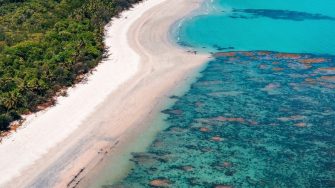
Overview
The UNSW Topics in Australian Marine Science (MSCI6681) course This Unit of Study will introduce students to current research undertaken in various disciplines of marine science in Australia. This unit is co-taught at the Sydney Institute of Marine Science (SIMS) with contributions from the University of Sydney. Lectures and tutorials will be taught by leading marine science researchers. Topics will cover physical and biological oceanography, climate change, molecular ecology, aquaculture, marine biology and marine geosciences. In practical classes, students will analyse and interpret temperature, salinity, plankton, remote-sensed, and acoustic telemetry data from the Integrated Marine Observing System (IMOS), which provides comprehensive information on the biological and physical processes of Australia’s coastal and oceanic waters. For example, visit the OceanCurrent portal for recent events
Notes:
- Students are required to attend classes at The Sydney Institute of Marine Science (Chowder Bay Road, Mosman) taught by representatives of partner universities. Meeting once per week throughout Term 1. This is a data intensive course.
- Assumed knowledge for this course is a practical, working knowledge of statistical analysis at undergraduate level using R, including t-test and ANOVA, GLM regression, residuals analysis, multivariate analysis other general data analysis and manipulation using Excel spreadsheets.
Term offering
Term 1
Course attendance
In person
Level
Postgraduate
Undergraduate - Third Year
Discipline
Marine science
Course code
MSCI6681
Career opportunities
Marine scientists have a deep understanding of the ocean and marine life. By observing the interactions of marine plants and animals with coastal areas and the atmosphere, marine scientists can help preserve ecosystems.
Relevant roles
- Meteorologist
- Geologist
- Geophysicist
- Hydrologist
- Ecologist
- Environmental scientist
- Natural resource manager
- Marine scientist
- Marine biologist
- Environmental scientist
What our graduates say
“The Topics in Australian Marine Science course is designed to broaden your knowledge of the marine sciences as a whole. Every week, students undertake a different hands-on tutorial led by some of the best researchers in their respective fields, developing practical skills such as programming and data interpretation.
Along with the practicals, the seminars are led by renowned scientists that range in topics from environmental management to fisheries sciences to microbiomes, to remote sensing; definitely something for everybody. The class is also a great way to network and connect to your peers and academics, which in my case led to further research opportunities down the road. A must take!”
- Bo Liu, UNSW graduate in Master of Marine Science and Management.
